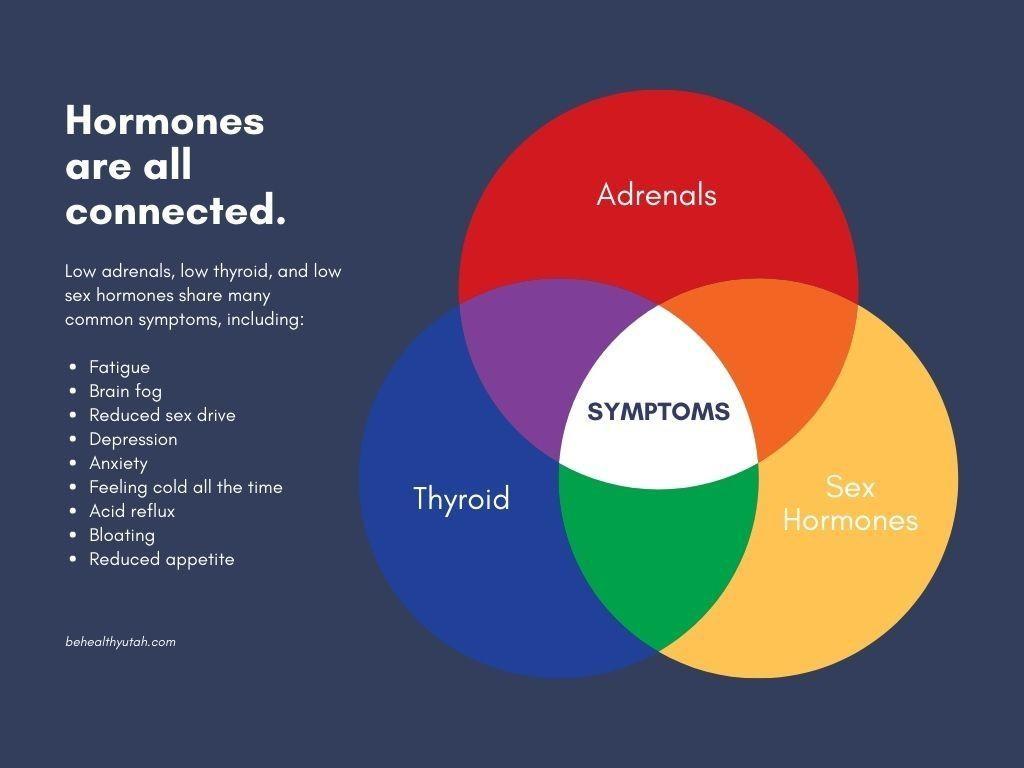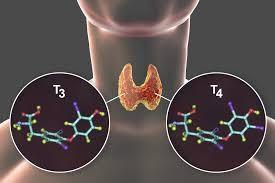Hormones:
Understanding Adrenals and Thyroid
This could be what your doctor is missing.
My Lab Tests Are Normal, But Something Is Wrong!
You know the feeling: you wake up exhausted, no matter how much sleep you get. Your digestion is off, your brain feels foggy, and you just don’t feel great. And you’ve felt like this for a while. You go to the doctor, and they say that all your tests are normal.
What’s wrong? There’s a good chance you have a hormone imbalance.
The Big Three

From the Expert...
According to Dr. Todd Cameron, N.D., most people are hypothyroid or have adrenal insufficiency but don’t know it. In his talk at the 2019 Be Healthy Utah conference, he outlined the symptoms and causes of each imbalance and the treatment he recommends for his patients. Here’s a quick overview.


Normal Is Not the Same as Optimal
Many patients suffering from low adrenals or thyroid go untreated because their hormone levels are within the normal range. Dr. Cameron and other functional medicine practitioners use a narrower range to determine when and how to treat patients. For example, the normal range for thyroid is 0.4 – 4.5, but Dr. Cameron treats anything over 2 as clinical hypothyroidism.
Is It Adrenal Fatigue?
“Adrenal fatigue” is a term used in natural health circles to describe the symptoms of low adrenals. The theory is that as the body gets stressed, the adrenal glands become overstimulated, and in the long-term you have a more difficult time reacting to and recovering from stress.
However, there is no clinical evidence to support this theory. This is why conventional doctors may react strongly if you ask about adrenal fatigue—they say it doesn’t exist. But there is a recognized condition called Addison’s disease, which is the inability to produce cortisol. Some would argue that adrenal fatigue explains what leads to Addison’s disease, while others aren’t sure of the cause. And again, even if your tests fall within “normal” range, you may be functioning at sub-optimal levels.

Whatever the cause and whatever you call it, your symptoms are real. Figuring out the cause and treatment of those symptoms can be tricky: when your adrenals are suppressed, for example, you will likely have signs of low thyroid. So be careful about diagnosing and treating yourself. Always get professional advice first.

Understanding Low Thyroid
The thyroid produces four hormones, conveniently named T1, T2, T3, and T4. The ones to watch and keep in balance are T3 and T4. T3 is the “conductor” of a thyroid “orchestra”; it keeps everything in balance and working properly. It must be the dominant hormone in order to keep everything balanced.
Unfortunately, conventional thyroid tests only look at TSH (thyroid stimulating hormone) and don’t look at the balance between T3 and T4. And then if you are diagnosed as hyperthyroid, you will often be given only T4. This treatment runs the risk of increasing the imbalance rather than fixing it.
The Bottom Line
If you are experiencing symptoms of low adrenals or low thyroid but your conventional tests come back normal, you would do well to get a second opinion from a doctor who practices functional medicine. He or she will conduct thorough tests to determine the root cause and find the best treatment for your specific needs.

Want To Learn More?
Join us at the Be Healthy Utah Natural Health and Wellness Conference



